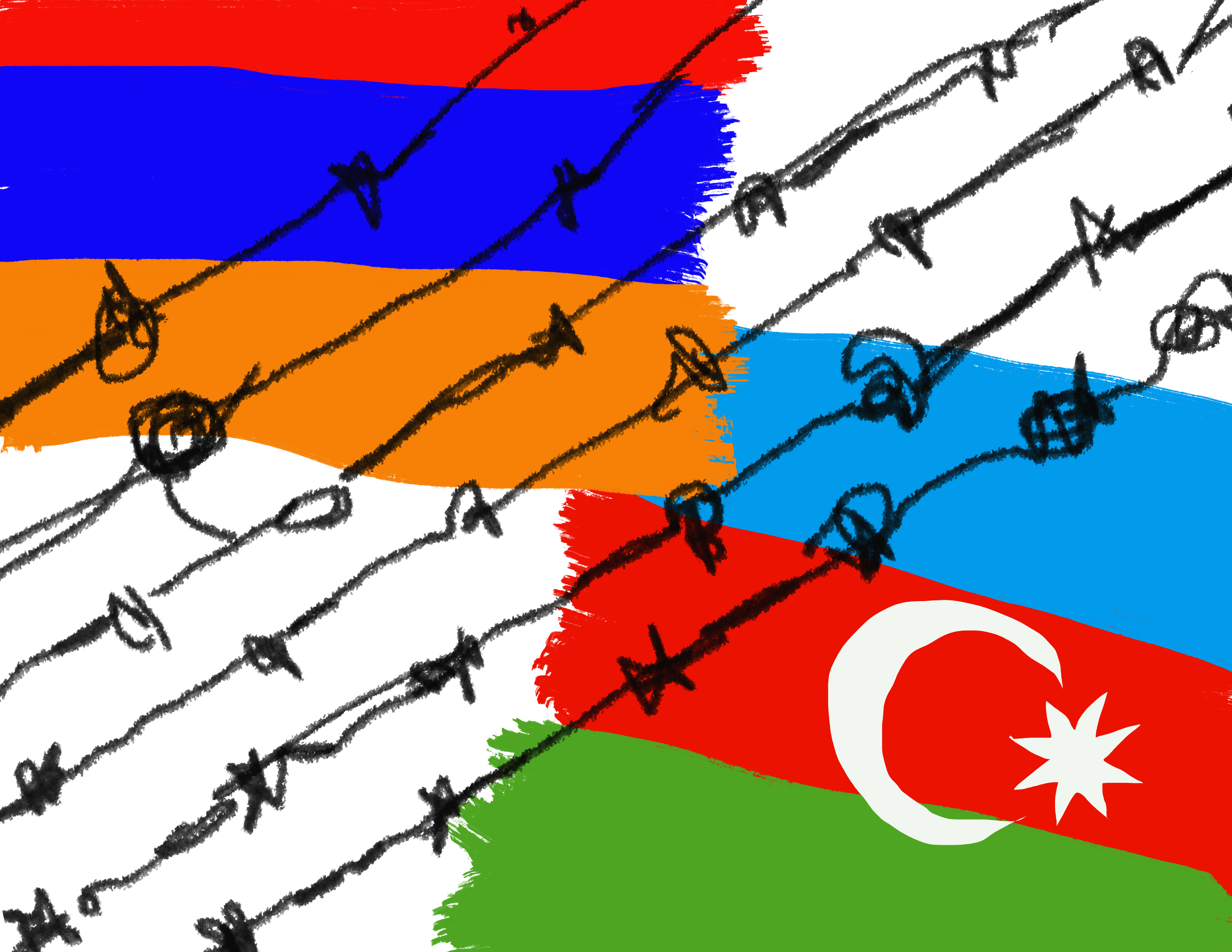Armenians and Azerbaijani share different perspectives, post ceasefire
On Nov. 9, 2020 a ceasefire agreement was signed between Armenia and Azerbaijan. The deal was brokered by Russia and ended 44 days of warfare in Nagorno-Karabakh (known to Armenians as Artsakh). Now, both Armenian and Azerbaijani communities across the globe are dealing with the conflict’s fallout.
The capitulation by the Armenian government determined a complete victory for Azerbaijan. Azerbaijan will hold on to the land it took during the conflict and Armenia agreed to withdraw from several other adjacent areas.
Ismayil Alakbarov is a political analyst and one of the board members of the Network of Azerbaijani Canadians.
“We feel honoured and we feel very happy that justice is restored. We feel a responsibility on our shoulders to help this region to bring peace and stability,” said Alakbarov.
“We as Canadians want to help the region,” Alkabarov continued. “We as the Azerbaijani community and the Armenian community living in Canada need to prove that it’s here in terms of reconciliation we need to build inter-community here and bring this model to the region.”
While the Azerbaijani people are celebrating a victory, Armenians are disappointed.
Sevag Belian is the executive director of the Armenian National Committee of Canada.
“Armenians feel absolutely betrayed by the international community … Most countries did not lift a finger, or simply they kept it within the boundaries of some empathetic statements by saying, you know, they’re concerned and they would like for peace to reign,” said Belian.
Belian says many Armenians are feeling betrayed by their own government as well.
“They weren’t being transparent enough, and they weren’t being open enough in terms of how the negotiations were ongoing … But we can’t vent our fury at the Armenian government. As Canadians, we can only share that with our government here,” Belian continued.
Fighting being brought to an end is a good thing. But at the moment it seems like both sides — both in their home countries and here in Canada — have issues with the agreement.
“There was a very lopsided announcement, a lot of the grievances of the Armenian people and regions, the indigenous population of the land has not been addressed in the announcement … There are many prisoners of war that are still being held captive by Azerbaijan,” Belian said.
For the Azerbaijani people, the issues come from the new Russian military presence in Nagorno-Karabakh. The ceasefire agreement will bring nearly 2,000 Russian peacekeepers into the area.
“Of course, we don’t feel good about it, honestly Azerbaijani people are not happy with having Russian peacekeepers and military presence inside of Azerbaijan … It’s not welcome. We don’t want any other country’s military presence in our home country, but on the other hand, it is good for the security of the people living there,” said Alakbarov.
It’s difficult to tell if the ceasefire will lead to lasting peace within the region. At the time the deal was signed, Armenians in Nagorno-Karabakh were under intense pressure, having just lost Shusha (known as Shushi in Armenian) the second-largest city in Nagorno-Karabakh.
While the situation remains delicate neither side wants a war to continue.
“Let’s sit down let’s talk, let’s bring forward our issues. What is wrong with coexistence together,” said Alakbarov.
Armenians also want peace talks to be revisited.
“We want peace to hold but whether lasting peace can be achieved based on the provisions that are included in the Nov. 9 ceasefire announcement is hard to tell because a lot of issues in the region were not addressed,” said Belian.
But Azerbaijani people feel hesitant to give up anything they won in November.
“If Armenians do not want war, if they want to have peace and stability they should forget about putting forward territorial claims. They should accept Azerbaijan citizenship and integrate into Azerbaijani society,” said Alakbarov.
“The president of Azerbaijan declared the highest level of guarantee to their security as citizens.” Alakbarov continued.
Despite tensions remaining high, a meeting was held on Jan. 11 between the leaders of Russia, Armenia and Azerbaijan. Azerbaijani President Ilham Aliyev, Armenian Prime Minister Nikol Pashinyan and Russian President Vladamir Putin met for the first time since the ceasefire agreement. The three parties discussed reopening transit routes between the regions in an effort to return stability to the region.
“Now having achieved this peace deal there is a good and excellent opportunity for this region to reconcile … This could be a good opportunity for the region to integrate economically,” said Alakbarov.
For Armenians however, this is not the primary issue.
“I think it’s pointless to speak about opening back trade routes and transportation links … The issue of our cultural heritage, and all the issues that are related to that none of these were discussed,” said Belian
Click here for more information on the recent conflict and history.
Graphic by @ihooqstudio
